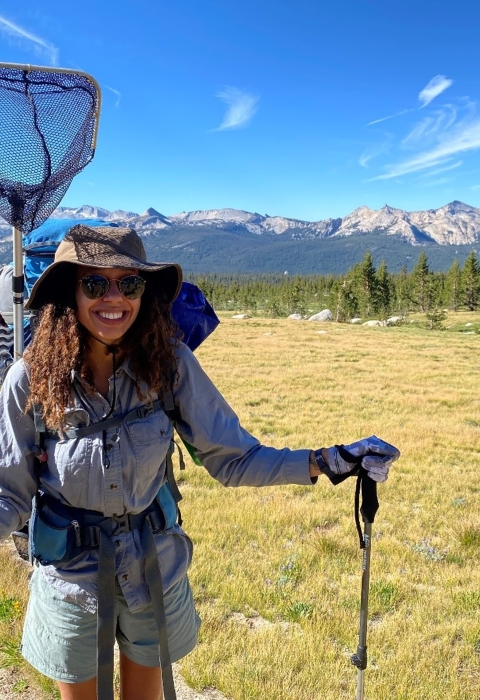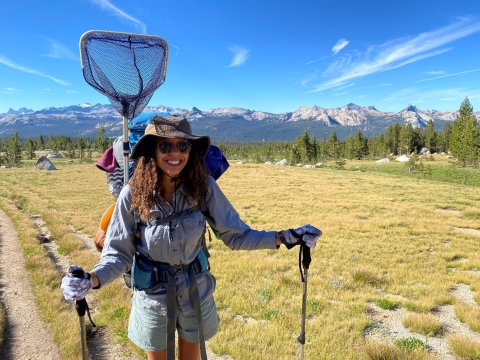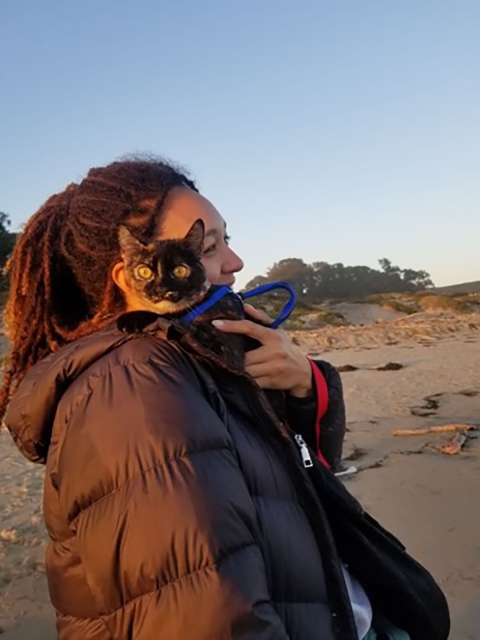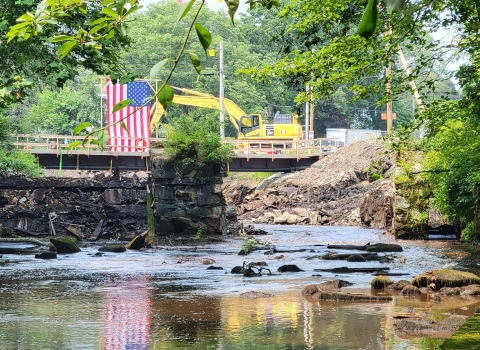Vanessa Morales (VM): Hey Imani! Welcome to the U.S. Fish and Wildlife Service as a Pathways Intern! What did you study prior to this internship?
Imani Russell: For my undergrad I went to Mills College in Oakland, California, which previously was an all-women’s college. I majored in Ecological Theory and Practice and studied California ground squirrels and ectoparasite transmission. I was looking at fleas and ticks, collecting droppings, examining fur and identifying species that carried plague or other diseases.
VM: Wow! That is so interesting! What made you want to pursue this research?
IR: My grandpa was a biologist for the U.S. Fish and Wildlife Service and used to take my cousin, nana and me to the desert and would show us different places he worked including national wildlife refuges. I was able to experience a lot of nature when I was young. I didn’t understand the magnitude of what I was looking at back then but always appreciated it. Once I got to college, I still loved animals, so I wanted to study animal behavior, conservation and ecology. My grandpa was my early inspiration!
VM: That is amazing! What came after your undergraduate work?
IR: I took a couple years off before my master’s degree working in restaurants and doing international field work. After that, I went to the University of Michigan for my master’s degree, where I was introduced to my current research focusing on frogs and chytridiomycosis, which is a fungal disease in amphibians distributed all around the world. I never thought I would be interested in lab work since I really thought I wanted to be a field biologist, but then I became really interested so I went straight from my master’s into a PhD program at the University of California Santa Barbara. I didn’t mind being in the lab because I thought genetics were really cool and could answer so many different questions. My PhD is still looking at frogs and the fungus and understanding if there are ways we can use genetic information to predict how disease will spread in the future.
VM: Sounds really interesting and important! What brought you to the U.S. Fish and Wildlife Service?
IR: In college when taking my conservation and ecology classes, I found it very interesting that the data similar to what we collected in school was later used for management plans. I became interested in that work by taking those classes. My professor worked as a teacher and for the U.S. Forest Service, so she had great input about how applied management works. I became interested in the Service after reading papers where data was actually used by management agencies. I consider that professor to be my conservation hero!
VM: Awesome! What are you working on while you’re here in Ventura as a Pathways Intern?
IR: I am a biology intern working on the BeachCOMBERS project, which helps us understand the health of our coastlines through citizen science. I am compiling and analyzing data from different formats and sources. I am trying to standardize it to keep it consistent moving forward so that we can do self-contained analyses.
VM: Very much needed to help the BeachCOMBERS project moving along! Thank you so much for all the expertise you bring to the office! How do you spend your free time?
IR: These days, while I am completing my studies, I spend a lot of my free time relaxing. I knit, watch reality TV, and watch my cat and dog run around and play!
VM: So well deserved! Do you have a hidden talent?
IR: I can remember every detail about Real Housewives! I want people to know that biologists don’t have to be interested exclusively in biology, you can also be interested in other things!
VM: I absolutely love that! Everyone is unique with different talents and information! Thank you, Imani!




